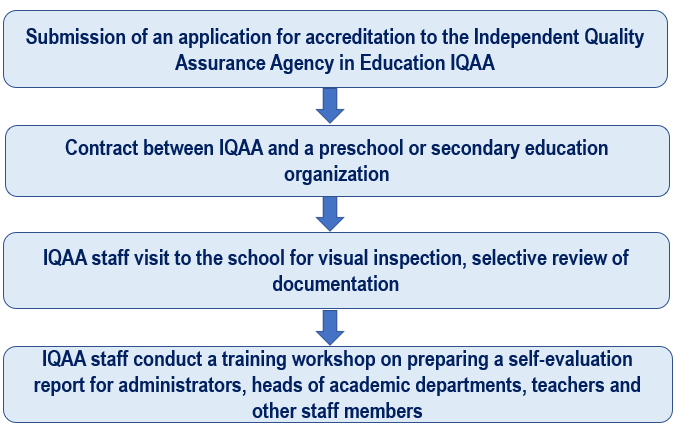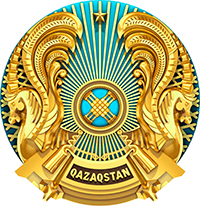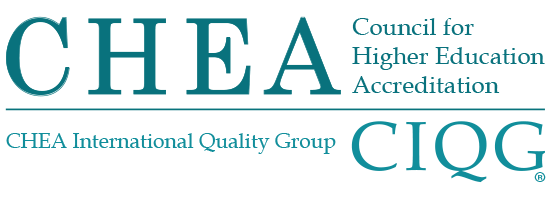THRESHOLD REQUIREMENTS
IQAA agency's threshold requirements for preschool and secondary education organisations to participate in the institutional accreditation procedure were approved by the Order of the President IQAA.
STAGES OF INSTITUTIONAL ACCREDITATION
Accreditation of preschool or secondary education organizations is divided into 3 stages.
Preliminary steps

Stages of school self-evaluation
- Creating a Guiding Committee with working groups.
- Planning and organizing the self-evaluation process.
- Identifying the situation and preparing the self-evaluation information, involving the whole team in the process.
- Conducting the self-evaluation process and making decisions by the school management based on a review of the school information and decisions to improve the organization's performance.
The main principles to be taken into account by secondary education organizations when writing a self-evaluation report:
- The report should reflect the school's performance in light of the realization of its mission, goals and strategic planning.
- All conclusions should be justified and supported by relevant supporting documents.
- The text may refer to materials available on the school's website or on its server, which should be made available to the external expert group.
External evaluation procedure:
- Once the final version of the self-evaluation report has been received, the IQAA and the school prepare for the external evaluation.
- The IQAA forms an expert group and determines the timing of the external evaluation of the school.
- The agency coordinator approves the program of the external evaluation with the head of the expert group and the school.
- In accordance with the visiting program, the expert group assesses the school's performance.
- Following the results of the external visit, the expert group prepares a report and provides the school management with the preliminary results of the external evaluation.
The program of the external expert group's school visit includes:
- Interview with the school director
- Interviews with deputy directors
- Interviews with heads of methodological associations
- Interviews with teaching staff
- Interviews with students
- Interviews with the parents of students
- Visual inspection of the school
- Visits to classrooms, laboratories, library, student support services
- Sample visits to classes
- Examination of school records
- External experts discussing the results of the external evaluation
- Presentation of preliminary results to school management in private
1. Consideration by the Accreditation Council of the school's accreditation materials.
2. The Accreditation Council makes a decision on accreditation of a secondary education organization.
3. In case of successful accreditation - registration and issuance of a certificate of accreditation of a secondary education organization for the relevant term.
STANDARDS FOR INSTITUTIONAL ACCREDITATION
The Independent Quality Assurance Agency in Education (IQAA) standards were developed specifically for accreditation of preschool and secondary education, taking into account current international trends and the national Kazakhstani context. These institutional accreditation standards cover all aspects of preschool and secondary education and include the following areas:
- Mission, Vision, Values, Goals, and Objectives. Planning and Effectiveness.
- Effective Leadership and Management.
- Teaching and Learning.
- Health and Safety.
- Resources and Student Support Services.
The standards contain normative requirements, criteria for assessing the performance of preschool and secondary education and are the main document for educational organizations when preparing self-assessment reports and for experts when examining these reports and conducting external audits.
This standard defines the requirements for the school's mission, vision, values, goals and objectives, as well as the process of strategic planning and evaluation of the effectiveness of educational activities. The mission of the school should be brief and reflect its philosophy, values and role in the socio-economic development of the region. It sets the direction of the school's development for 5-10 years. An important aspect is the involvement of teaching staff, administration, parents and the local community in the process of forming the mission and goals of the school. All stakeholders should be actively involved in the discussion and approval of these elements.
Strategic planning should take into account the changing environment and priorities set by the Ministry of Education. The key is to conduct a SWOT analysis to assess the school's strengths, weaknesses, threats and opportunities in order to adjust the strategic and annual plans based on this data. In addition, the strategic plan should include elements of inclusive education to ensure equal access to education for all categories of learners, including children with special educational needs.
The school should have a clear governance structure that ensures effective management of the educational process and maintenance of a high level of learning quality. The school should have governing bodies, such as the Board of Trustees, which plays an active role in approving the strategic development plan and monitoring the implementation of educational programs. The management should ensure stability and consistency in governance, have competences to make strategically sound decisions and support the professional development of staff. Plans should be developed to ensure continuity of management, as well as a system of internal documentation that regulates the roles and responsibilities of management staff, including their qualifications and training.
An important aspect is transparency in the management selection process and maintaining openness in management issues, which builds trust and effective communication with the public. It is also a key requirement to monitor learning and educational activities and to regularly evaluate and adjust progress towards the school's goals. The school should have clear procedures for monitoring and evaluating the results of educational activities, as well as methods of correction aimed at improving the quality of education.
This standard includes requirements for the quality of teaching, the content of the learning process and the control of students' progress. The school's academic policy should include mechanisms for curriculum formation, its implementation and control over the quality of teaching. The main principles are inclusion, equality of access and relevance of educational content to ensure quality education for all students. The school should have adequate resources to implement the curriculum, including qualified teaching staff, teaching materials, technical equipment and library resources. This also applies to ensuring the availability of additional educational programs and working with the individual needs of students.
Teaching methods should take into account the cultural, age and individual characteristics of pupils and introduce differentiated approaches that are in line with the principles of inclusive education. It is important to regularly evaluate teaching performance, using data on student progress, feedback from parents and colleagues to improve teaching and learning methods. As a result, this will not only improve the quality of the educational process, but also adapt it to changing requirements.
School management must establish a system that ensures the physical, emotional and cognitive well-being of all participants in the learning process. This standard defines how the school assesses and manages safety risks and how safety and health regulations are developed and updated. It is important that the school conducts regular training sessions, trains staff and students in emergency situations and co-operates with local services to ensure safety. The standard also includes requirements for monitoring safety, reviewing documents, and establishing a system to prevent child abuse, bullying, and harassment, which contributes to a safe educational environment.
The school must have an effective access control system for visitors, volunteers and others, including registration at the entrance, CCTV and strict access rules, which helps to prevent unauthorised entry to the premises. In addition, an important element is the provision of healthy and balanced meals for students that meet hygiene and sanitary standards. Having and adhering to written instructions on the storage and administration of medication is another important consideration. The school is required to develop procedures governing the safe use of medication, including staff responsibilities and parental information policies.
It is important that the school has the necessary material and non-material assets to ensure the quality of educational services. This includes not only buildings, classrooms, laboratories and sports facilities, but also the availability of textbooks, modern information technology, and the state of technical equipment. The school should monitor the effective usage of these resources, as well as regularly assess their condition and suggest ways for improvement. The school should ensure that the infrastructure meets the requirements of the National standards and sanitary norms, including safety, accessibility and hygiene standards.
Also important is compliance with accounting standards and financial sustainability of the school. The school must demonstrate the existence of financial policies, accounting and control systems that support the long-term financial sustainability of the school and contribute to its development. Annual financial audits and the adequacy of funding to meet the needs of students and staff are also important.
ӨТІНІМ ФОРМАСЫ
Институционалдық аккредиттеуден өту үшін білім ұйымы нысанға сәйкес IQAA-ға (This email address is being protected from spambots. You need JavaScript enabled to view it. ресми электрондық поштаға) өтінім береді.
APPLICATION FORM
In order to undergo institutional accreditation, educational organizations have to submit an electronic version of application to IQAA (via the official e-mail This email address is being protected from spambots. You need JavaScript enabled to view it.) in accordance with the registered form.
ФОРМА ЗАЯВКИ
Для прохождения институциональной аккредитации учебное заведение подает в IQAA заявку в электронном виде (на официальную электронную почту This email address is being protected from spambots. You need JavaScript enabled to view it.) согласно форме.
Мектепке дейінгі және орта білім беру ұйымдарының
ШЕШІМДЕР ЖӘНЕ ЕСЕПТЕР ТІЗІЛІМІ
REGISTER OF DECISIONS AND REPORTS
Organizations of Preschool and Secondary Educationя
РЕЕСТР РЕШЕНИЙ И ОТЧЕТОВ
Организации дошкольного и среднего образования
Список экспертов (выборка из базы данных)
Независимого агентства по обеспечению качества в образовании (IQAA)
| № п/п | ФИО | Регалии | Направление |
| 1. | Кадырова А.С. | Профессор, к.э.н. | Маркетинг, экономика |
| 2. | Сартаева К.Р. | Профессор, к.ю.н. | Юриспруденция, право |
| 3. | Абдижапарова Б.Т. | К.т.н., доцент | Автоматизация и управление, электроэнергетика |
| 4. | Минайдарова М.Е. | К.п.н., доцент | Филология |
| 5. | Майлыбаев Е.К. | Доктор PhD | Информационные технологии, автоматика |
| 6. | Акаев А.М. | Ассоциированный профессор, PhD | Электроэнергетика |
| 7. | Кипшаков С.А. | Ассоциированный профессор, к.п.н. | Дизайн |
| 8. | Касенов С.Т. | Ассоциированный профессор, к.ф.н. | Филология |
| 9. | Алмагамбетова М.Ж. | К.т.н., доцент | Химическая технология органических веществ |
| 10. | Жумадиллаева А.К. | Ассоциированный профессор, к.т.н. | Информатика |
| 11. | Рахимова Г.М. | Ассоциированный профессор, к.т.н. | Строительство |
| 12. | Горшкова Л.В. | Профессор, к.т.н. | Строительство |
| 13. | Есенгельдин Б.С. | Профессор, д.э.н. | Бизнес и финансы, Финансовая экономика |
| 14. | Надиров К.С. | Профессор, д.х.н. | Нефтегазовое дело |
| 15. | Борбасова З.Н. | Профессор, д.э.н. | Туризм |
| 16. | Жансеитова Г.С. | К.э.н., и.о. доцента | Экономика |
| 17. | Рустембаев А.Б. | Доктор PhD | Транспорт, транспортная техника и технологии |
| 18. | Ержанов А.С. | Доктор PhD | Материаловедение и экспертиза керамики, стекла и вяжущих |
| 19. | Ибадуллаева С.Ж. | Профессор, д.б.н. | Биология |
| 20. | Нусупбеков Б.Р. | Профессор, к.т.н. | Физика |
| 21. | Альмухаметов А.Р. | Профессор, к.ф.н. | Религиоведение |
| 22. | Сандибеков М.Н. | Профессор, к.т.н. | Горное дело |
| 23. | Келесова У.С. | Ассоциированный профессор, к.э.н. | Технология и конструирование изделий легкой промышленности |
| 24. | Бимаханов Т.Д. | Доктор PhD | Физическая культура и спорт |
| 25. | Исаев Г. | К.т.н., доцент | Биология |
| 26. | Сунакбаева Д.К. | К.т.н., и.о. доцента | Биотехнология |
| 27. | Васильев Д.В. | К.м.н., доцент | Медицина |
| 28. | Абдикаримова М.Н. | Доктор PhD | Международный туризм |
| 29. | Нурекенова Э.С. | К.э.н., доцент | Экономика, Финансы |
| 30. | Акильжанова А.Р. | Д.м.н. | Генетика |
| 31. | Сагындыков У.З. | К.б.н., доцент | Микробиология |
| № п/п | ФИО | Страна | Регалии | Направление |
| 1. | Шарков Ф.И. | Россия | Профессор, д.с.н. | Медиа-Журналистика |
| 2. | Ананьева А.А. | Россия | Д.ю.н., доцент | Юриспруденция, право |
| 3. | Капогузов Е.А. | Россия | Д.э.н., доцент | Экономика, финансы, менеджмент, маркетинг |
| 4. | Шангараев Р.Р. | Россия | К.и.н. | Исламоведение, религиоведения, история |
| 5. | Тайгузин Р.Ш. | Россия | Профессор, д.б.н. | Сельское хозяйство |
| 6. | Рыбников В.Ю. | Россия | Профессор, д.мед.н., д.псих.н. | Медицина |
| 7. | Битус Е.И. | Россия | Профессор, д.т.н. | Технология, металлургия |
| 8. | Данильчук Т.Н. | Россия | Профессор, д.т.н. | Технология, металлургия |
| 9. | Зыков С.В. | Россия | Д.т.н., доцент | ВТиПО, ИС, информатика |
| 10. | Lõhmus R. | Эстония | доктор PHD | Автоматика, механика, транспорт, Математика и физика |
| 11. | Азизов А.А. | Азербайджан | Профессор, д.х.н. | Химия, геология, нефть и газ |
| 12. | Зорин В.А. | Россия | Профессор, д.т.н. | Технология, металлургия |
| 13. | Gurvits-Suits N. | Эстония | Ассоциированный профессор, д.э.н. | Экономика, финансы, менеджмент, маркетинг |
| 14. | Гусова Д.Т. | Россия | Кандидат искусствоведения | Архитектура, дизайн, строительство |
| 15. | Масленников В.В. | Россия | Профессор, д.э.н. | Экономика, финансы, менеджмент, маркетинг |
| 16. | Гафурова Н.Э. | Узбекистан | доктор PHD | Юриспруденция, право |
| 17. | Черных В.Г. | Россия | К.т.н., доцент | Технология, металлургия |
| 18. | Коробова Н.Е. | Россия | Профессор, д.т.н. | Автоматика, механика, транспорт |
| 19. | Marko Marhl | Словения | Профессор, д.н. | ВТиПО, ИС, информатика |
| 20. | Смирнов В.Е. | Россия | Профессор, к.и.н. | История |
| 21. | Алосманов Р.М. | Азербайджан | Профессор, д.х.н. | Химия, геология, нефть и газ |
| 22. | Хаматханова Е.М. | Россия | Д.м.н. | Медицина |
| 23. | Иконникова Г.Ю. | Россия | К.псих.н., доцент | Педагогика, психология, дефектология |
| 24. | Винтайкин Б.Е. | Россия | Профессор, д.ф.-м.н. | Математика и физика |
| 25. | Mehmet A. Akgün | Турция | Профессор, доктор PHD | Биология, механика |
| 26. | Бийбосунов Б.И. | Кыргызстан | Профессор, д.т.н., д.ф.-м.н. | ВТиПО, ИС, информатика, Математика и физика |
| 27. | Джоробекова Г.Э. | Кыргызстан | К. пол.н., доцент | Международные отношения, политология, юриспруденция |
| № п/п | ФИО | Должность | Организация |
| 1. | Миниханова С. | Директор | Туристическое агентство «Evisa Travel» |
| 2. | Наурзгалиева А.А. | Президент | Казахстанская Ассоциация сахарной, пищевой и перерабатывающей промышленности |
| 3. | Сарбаев А.Т. | Профессор, д.сх.н. | Казахский научно-исследовательский институт земледелия и растениеводства |
| 4. | Некрасова Н. | Исполнительный директор | Ассоциации "Союз проектных менеджеров РК" |
| 5. | Аубакирова Г.Г. | Заместитель директора по научно-методической работе | Республиканская физико-математическая школа, г. Алматы |
| 6. | Бельгибаев С.Т. | Президент | Фонд содействия профессиональным СМИ |
| 7. | Әбіләзім А.С. | Директор | КГУ «Лицей-интернат «Білім-Инновация» №3» управления образования области Улытау |
| 8. | Сарсенбеков А.Ж. | Директор | «Областная школа-интернат для одаренных детей №10 «Білім-инновация лицейі» Коммунальное государственное учреждение Кызылординского областного отдела образования |
| 9. | Ибрагимов Ф.Р. | Директор центра обучения | АО «Онтустик мунай газ» |
| 10. | Вяткина И.Р. | Директор | ТОО "Endeavour" |
| № п/п | ФИО | Уровень и курс обучения | Специальность | вуз |
| 1. | Исабаев М.С. | Докторантура, 1 курс | Транспорт, транспортная техника и технологии | Карагандинский технический университет имени А. Сагинова |
| 2. | Хамит Қ.Қ. | Бакалавриат, 3 курс | Юриспруденция | Костанайский региональный университет имени Ахмет Байтұрсынұлы |
| 3. | Кусымбаева Д.Ф. | Магистратура, 2 курс | Финансы | Костанайский региональный университет имени Ахмета Байтурсынова |
| 4. | Султанов К.У. | Докторантура, 3 курс | Медицина | Южно-Казахстанская медицинская академия |
| 5. | Абдигапиров Н.Р. | Магистратура, 2 курс | Юриспруденция | Международный университет туризма и гостеприимства |
| 6. | Шардарова В.Н. | Бакалавриат, 3 курс | Туризм | Карагандинский университет имени академика Е. Букетова |
| 7. | Аяпбергенова А.Т. | Магистратура, 2 курс | Частное право | Карагандинский университет имени академика Е. Букетова |
| 8. | Ширханов Х.Ш. | Магистратура, 2 курс | Строительство | Международный транспортно-гуманитарный университет |
| 9. | Данько И.В. | Докторантура, 1 курс | Электроэнергетика | Satbaev University |
| 10. | Аубел М.М. | Магистратура, 2 курс | Журналистика | Университет Туран |
More...
ӨТІНІМ ФОРМАСЫ
Институционалдық аккредиттеуден өту үшін білім ұйымы нысанға сәйкес IQAA -ға (This email address is being protected from spambots. You need JavaScript enabled to view it. ресми электрондық поштаға) өтінім береді.
INFORMATIONAL VIDEOS
In order to inform and train students more effectively on procedures of quality assurance in education, the staff of the agency develops informational videos, which describe in details the work carried out by IQAA and demonstrate the procedures of quality assurance. These videos is a good source of additional information for students and other experts to improve their knowledge and expertise in the field of quality assessment.
Below you can find a list and references to informational videos on the official YouTube Channel of IQAA.
A series of informational videos on procedures of quality assurance in education:
1. What is accreditation?
2. The procedure of quality assurance in educational organizations.
3. The role of students in the process of quality assurance in education.

 Ministry of Science and Higher Education of the Republic of Kazakhstan
Ministry of Science and Higher Education of the Republic of Kazakhstan 


 Ministry of Education and Science of the Kyrgyz Republic
Ministry of Education and Science of the Kyrgyz Republic




